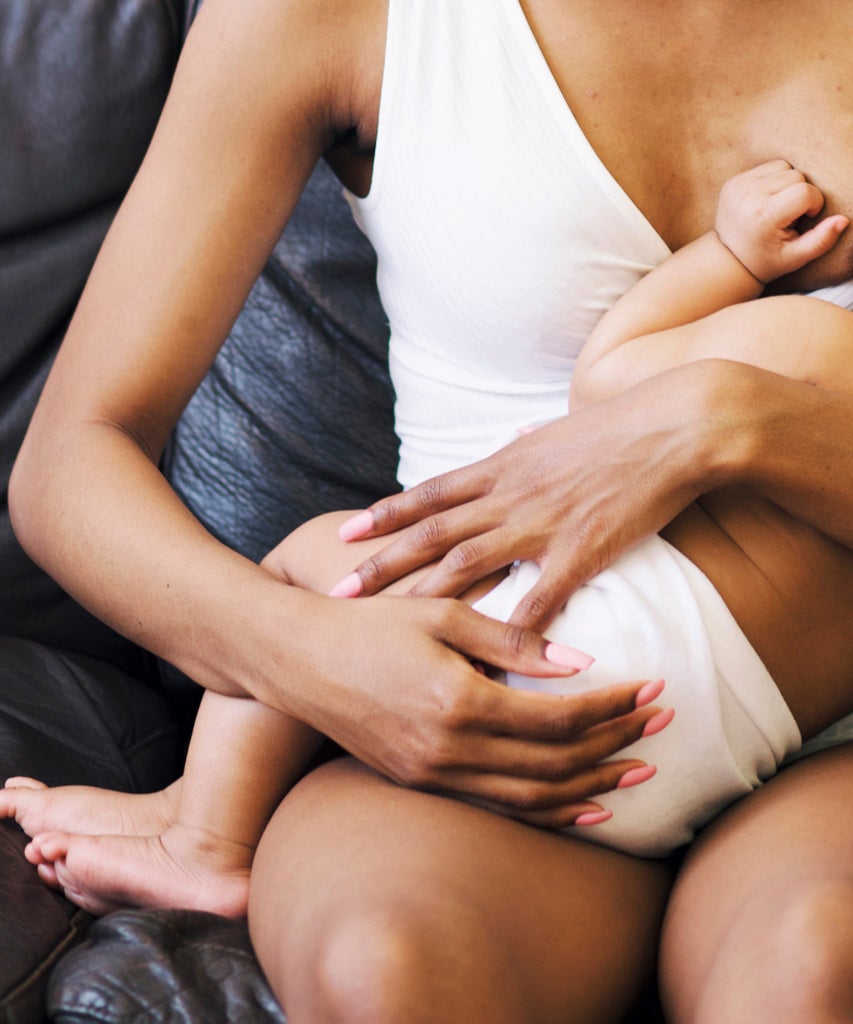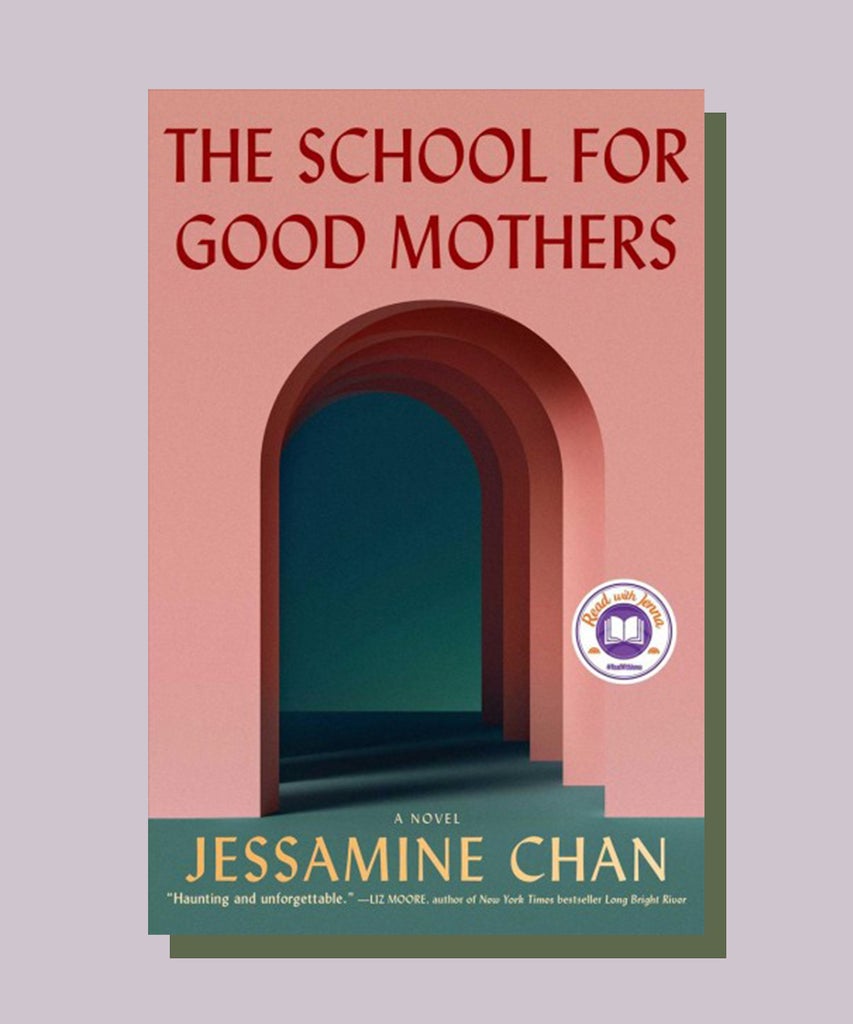
On January 4, editor Katie Adams tweeted: “Maybe I’m just not a good mom anymore. Maybe I used to be and now I’m just not and also I have no time to do anything else either.” It’s hard to fathom a mother who doesn’t feel this sentiment deep in her bones after the last two hellish years, which have stretched us way past the point of generic burnout. Illness, anxiety, childcare disruptions, capitalism at all costs, school closures and anti-mask/anti-vax crusades has left most mothers, as Amil Niazi recently wrote, “dead inside.” To imagine that any of us could aspire to “good motherhood” right now seems laughable, if not cruel.
Adams’ tweet inspired dozens of empathetic responses, mostly in the vein of “I feel this” followed by lots of heart emojis (to be clear, I also feel this). But in the fictional world of Jessamine Chan’s new novel, The School for Good Mothers, a tweet like Adams’ would likely have more significant consequences — a tweet like Adams’ might result in a visit from Child Protective Services, loss of custody, or maybe a state-mandated reeducation in what exactly good motherhood entails. Such is the fate of Chan’s heroine, Frida, who, having made a parenting misstep as a result of exhaustion, overwhelm, and a lack of structural supports that’s not so different from what most mothers in this country are forced to navigate, finds herself sent to The School for Good Mothers. Her education (sentence) takes a year, during which she is deprived of physical contact with her toddler daughter, all parental rights, and most human rights as well. The book is a harrowing dramatisation of how the cultural and systemic demands we place on mothers create conditions in which all mothers are doomed to fail, and in which mothers are continuously robbed of their humanity “for the good of” their children. Or for the good of the state. It’s hard to tell.

Frida’s cohort of bad mothers “learning to be good” run the gamut from women caught spanking their kids at the supermarket to mothers complaining about their kids on social media. Most of them are marginalised by class or race, and the few white mothers at School are suspected of being spies. In an email, Chan told me this was very much intentional, in an effort to draw attention to the way mothers with intersectional identities are stigmatised and policed in ways that other mothers (white, class-privileged, married, heterosexual) are not.
“I’ve tried to stay aware of how much my experience of mothering is shaped by my class privileges,” Chan told me, acknowledging how childcare, full-time preschool, a supportive partner, and family help have all contributed to her “success” as a mother. “What I hope the book calls into question is whether it’s possible to objectively judge another parent as ‘good’ or ‘bad,’ since I think those judgments are so often coloured by race, class, and culture.”
As inspiration for the novel, Chan mentions Rachel Aviv’s New Yorker article about the termination of one mother’s parental rights due primarily to a lack of support (both structural and personal). “Something about that story lodged in my mind,” Chan said, “I was so enraged on that mother’s behalf. The system she was fighting against felt so impossible. I wanted her to have a second chance and be allowed to raise her son. The idea that one day’s decision could change your life and your family’s life forever was terrifying.”
Fans of Margaret Atwood will feel right at home in Chan’s dystopian rendering of what happens as a result of unrealistic, unattainable “good mom” worship, and while the central plot is heartbreaking, Chan also brilliantly skewers current “good mother” fads with delicious deadpan humour. One of my favourite characters to laugh at is Susanna, Frida’s ex-husband’s new paramour, who is young, beautiful, white, and earnestly believes good parenting is made simple by the correct brand of organic cotton onesies and the demonisation of plastic. According to Susanna: “Frida should have some healing, grounding crystals in the nursery. Susanna would be happy to give Frida some rose quartz to start her off.” In the novel, Chan writes that Susanna and Frida’s ex will ultimately “try for a baby of their own, but first they’re going to heal their cavities through herbs and meditation and good intentions.” Susanna, is, in short, the woo-woo wellness mumfluencer of one’s dreams (or nightmares).
Through a specifically sadistic form of “instruction,” Frida’s “teachers” attempt to reform her so that she is able to graduate with “good grades” and retain custody of her daughter Harriet, custody that will likely always be surveilled due to Frida finding herself in need of schooling in the first place. And what does a “good mother” look like in Chan’s fictional school? Not totally unlike what most of us have been conditioned to assume a good mother looks like IRL: “Mothers must manage emotional upset, break up fights, set appropriate limits, impart wisdom about sharing, turn-taking, patience, generosity, and community values.” Whilst reading aloud to children, good mothers must “pay attention to vocal variation” and “treat each phrase as a burst of light.” A good mother must never be angry, must never harbour negative feelings, and her kisses should possess a “fiery core of maternal love.” The School’s instructors insist that a good mother “can do anything,” but Frida finds the hardest part of being good “staying cheerful and amazed.”
Chan told me, “the curriculum of the school is intended to satirise heteronormative (and upper-middle-class) white ideals of motherhood and parenting, which our culture treats as universal. When we talk about helicopter parents or bloggers or influencers, we’re usually not talking about women of colour, and we’re usually only talking about women from a certain socioeconomic background.” And in real life, even if mothers barred from white ideals of motherhood do succeed in imbuing their kisses with the “fiery core of maternal love,” many face far more serious roadblocks to good mother entry status. Chan notes as much, saying that “mothers who are punished by the government for parenting offences are primarily Black and brown women,” in America. The cultural edict to be a sufficiently “good” mother impacts all of us, but these pressures are compounded according to a mother’s intersectional identity.
Mia O’Malley is an American content creator, a creator of the @plussiszebabywearing Instagram and TikTok accounts, and a fat advocate. (The word fat has been reclaimed by body positivity and activists as a neutral descriptor, rather than a derogatory slur.) Over email, she explained to me that “plus-size mothers are policed and surveilled starting in pregnancy, unless they work with a size-friendly provider,” and are routinely denied access to fertility treatment as a result of anti-fat medical bias. O’Malley also said that plus-size content creating moms even receive threats that their “kids should be taken away or social services should be called.”
Lifeskills coach Andrea Landry runs the Instagram account, @indigenousmotherhood, and told me over the phone that the harmful effects of colonisation can still be seen today in the “huge struggle” of a disproportionate number of Indigenous children being placed in non-Indigenous foster homes in non-Indigenous communities. Landry says she used to be hyper aware of ensuring her daughter always had her hair done and her “nicest clothes on when we would go to town because I always had this fear that, oh, someone’s gonna look at her and find any excuse to call CPS on us.”
Black children also make up a disproportionate number of children in foster care in the U.S. (and experience worse outcomes than their white counterparts), and Black mothers continue to experience racist bias in maternal healthcare, leading to negative outcomes for Black mothers and their babies. Prospective adoptive LGBTQ parents in the States still face “state-sanctioned discrimination,” and disabled mothers know that in many states, their parental rights can be suspended as a result of their disability status. Additionally, teen mothers must combat social stigmatisation and structural hurdles to accessing resources, according to Nicole Lynn Lewis, the founder of Generation Hope, who covers the issue in her book, Pregnant Girl. Immigrant mothers in America are routinely separated from their children, and some have testified to obstetric abuse and forced sterilisation at ICE detention centres. It’s hard to call Chan’s world “dystopian” when our own is already there.
Chan says she “couldn’t have predicted just how grim things would be in January 2022, or how the book would be read at a time when women’s rights are disappearing rapidly.” She acknowledges that the past two years have ushered in lots of talk about maternal inequities but “very little has happened on the level of policy.” Chan continued: “It’s always been so troubling that our culture exalts mothers but offers them no support whatsoever. Why does affordable childcare or universal pre-K or humane family leave or keeping Roe v. Wade have to be a far-fetched dream?”
The School for Good Mothers is a razor-sharp, funny, horrifying fictionalisation of what happens as a result of one mother’s “very bad day;” it’s also an enraging reminder that many mothers in this country are dealing with their own “very bad days” without any hope of simply turning a page or picking up a different book. In this case at least, it would be nice if fiction was further removed from reality.
Like what you see? How about some more R29 goodness, right here?
Intimate & Honest Photographs Of New Motherhood